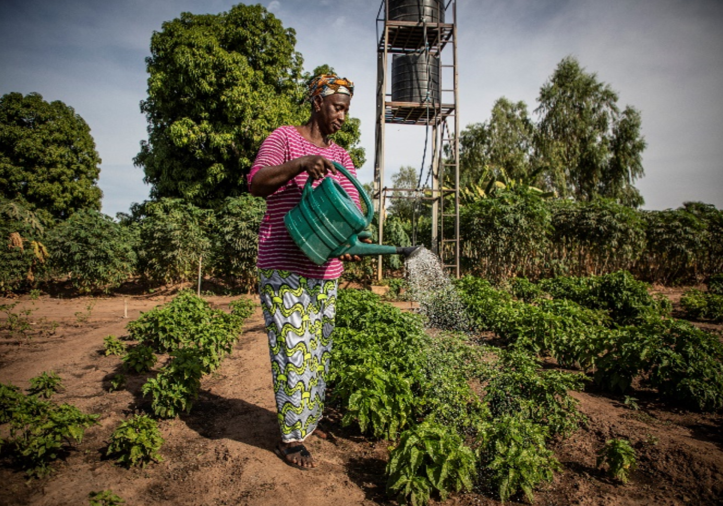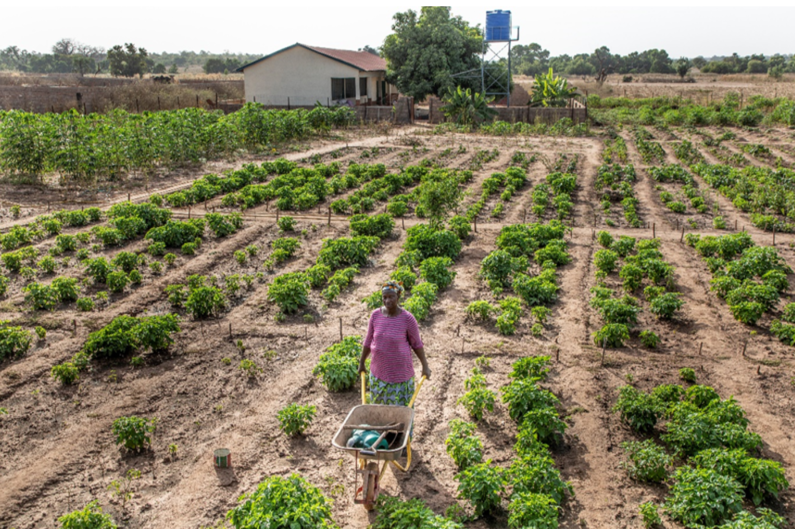In rural areas of The Gambia, land ownership is almost exclusively reserved for men. Because women have neither the financial capacity nor opportunity to purchase land, it is extremely difficult for them to build viable and successful businesses. This in turn has a knock-on impact on food security, health and education, further perpetuating the cycle of poverty.
Image: Assiatou waters her crops on her own piece of land
Meet Assiatou. For many years, this almost-50-year-old struggled to make a living by growing groundnuts and millet on land that was not her own. She knew the land could be taken away from her at any time – and increasingly erratic weather patterns (a result of climate change) only added to the insecurity.
“I am married with four children – and caring for them by providing enough food was very challenging,” Assiatou says. “It was also very difficult to support their education, healthcare, clothing and other needs.”
United Purpose’s project gave Assiatou the financial backing (50% loan, 50% grant) she needed to purchase her own plot of land. Once she had secured it, she was able to fence it off and sustainably cultivate the soil – practices previously out of reach due to lack of ownership and financial constraints.
Assiatou’s increased crop production has enabled her to grow her business: “From my surplus income, I have made savings of more than GMD 30,000 (€531 Euro) with the Credit Union, installed a sprinkler irrigation system and employed two men,” she says. “Proudly I am expanding my garden scheme on another piece of land that I am currently fencing, also entirely owned by me.”
As Assiatou’s business grows, so does her family’s financial security. This in turn is enabling them to eat a more nutritious diet, pay for any healthcare needs and send the children to school – all breaking the cycle of poverty and empowering this family to move beyond aid.
Context:
Funded by the European Union, our ‘Inclusive Business Opportunity for Social and Economic Empowerment of Women in Upper River Region’ project increased entrepreneurship opportunities for rural women in The Gambia. From January 2018 to December 2020, we delivered the project through our longstanding partner, Wuli and Sandu Development Agency (WASDA). The project empowered over 400 women farmers through land ownership, increased crop production, climate smart practices, crop protection and business training.
Image credits: Jason Florio






